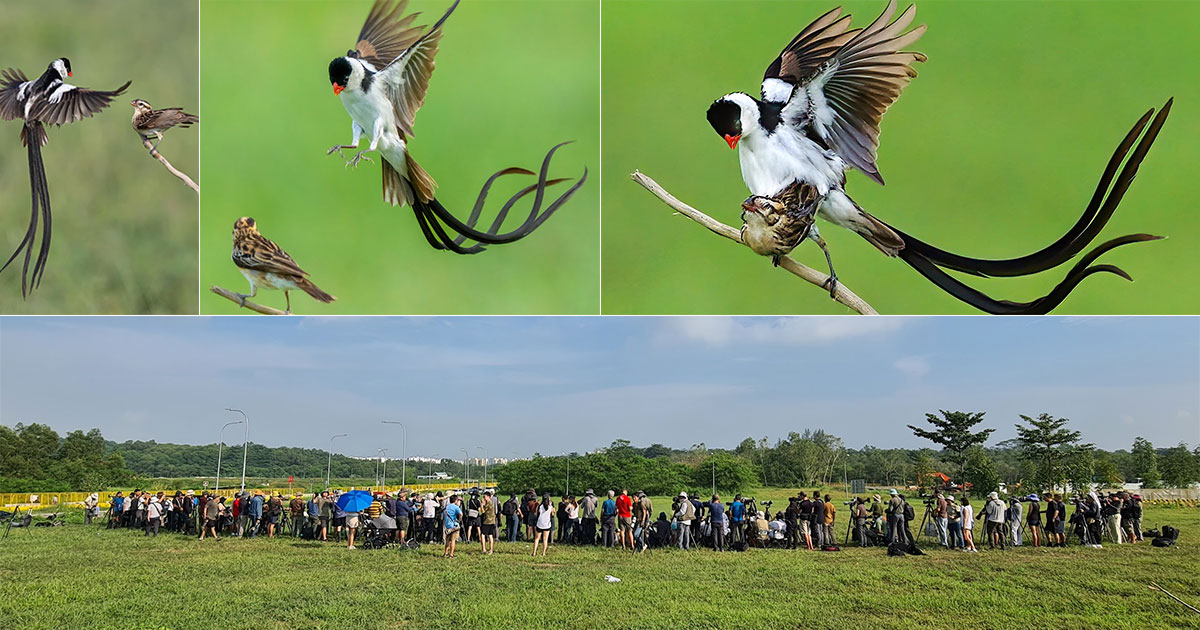Follow us on Telegram for the latest updates: https://t.me/mothership sg
Throngs of photographers endured the recent heat in the middle of nowhere in Singapore to catch a glimpse of two birds in heat.
Pasir Ris Farmway 3 is usually an ulu -- aka far-flung -- part of Singapore no one goes to, but is currently the campsite of a whole crowd of birders waiting patiently for a pair of birds to indulge in courtship displays.
Mating dancing
The male's courtship dance involves fluttering up and down mid-air as the female watches on atop a tall perch.
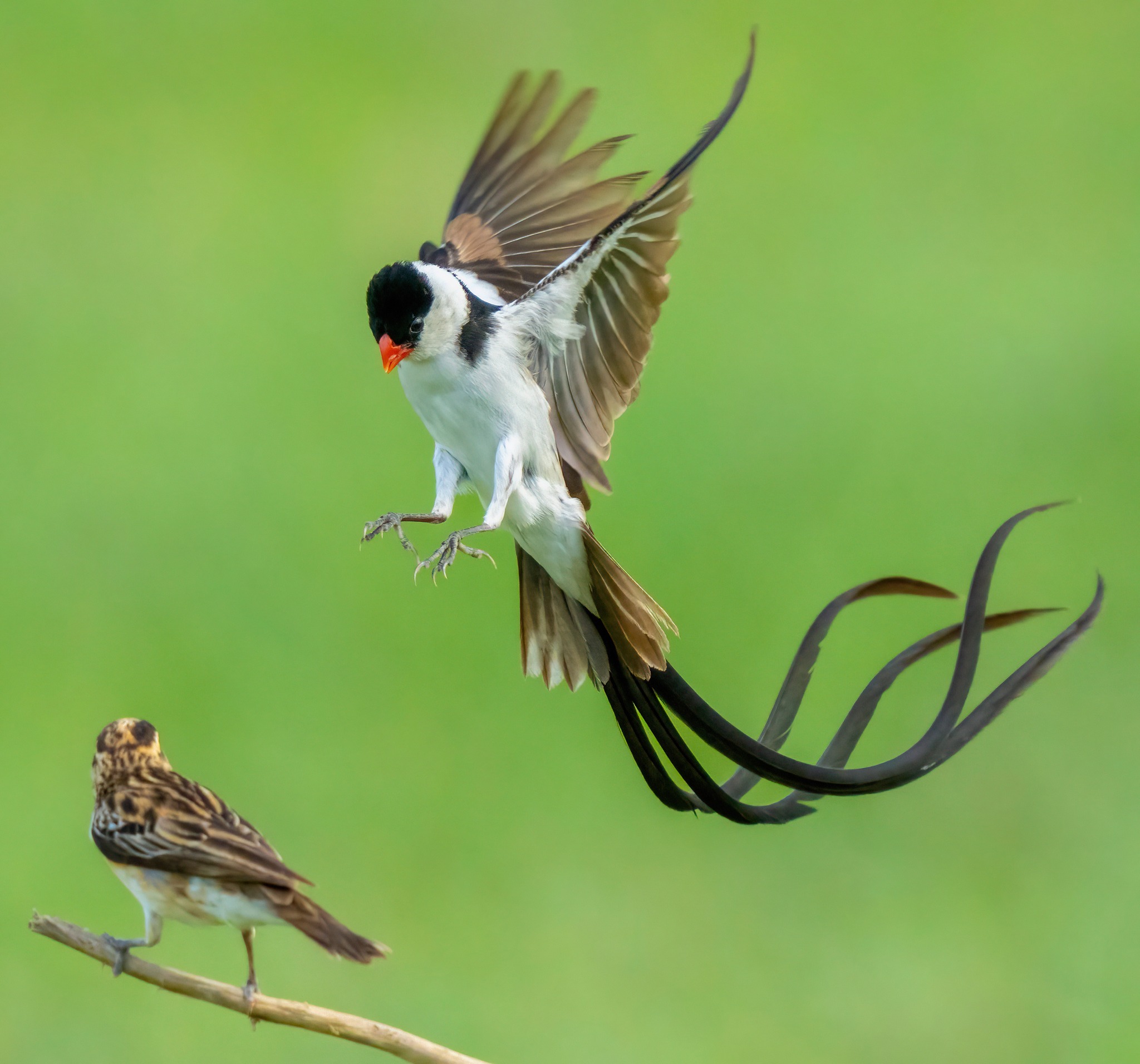 Image courtesy of Kelvin Ow/FB.
Image courtesy of Kelvin Ow/FB.
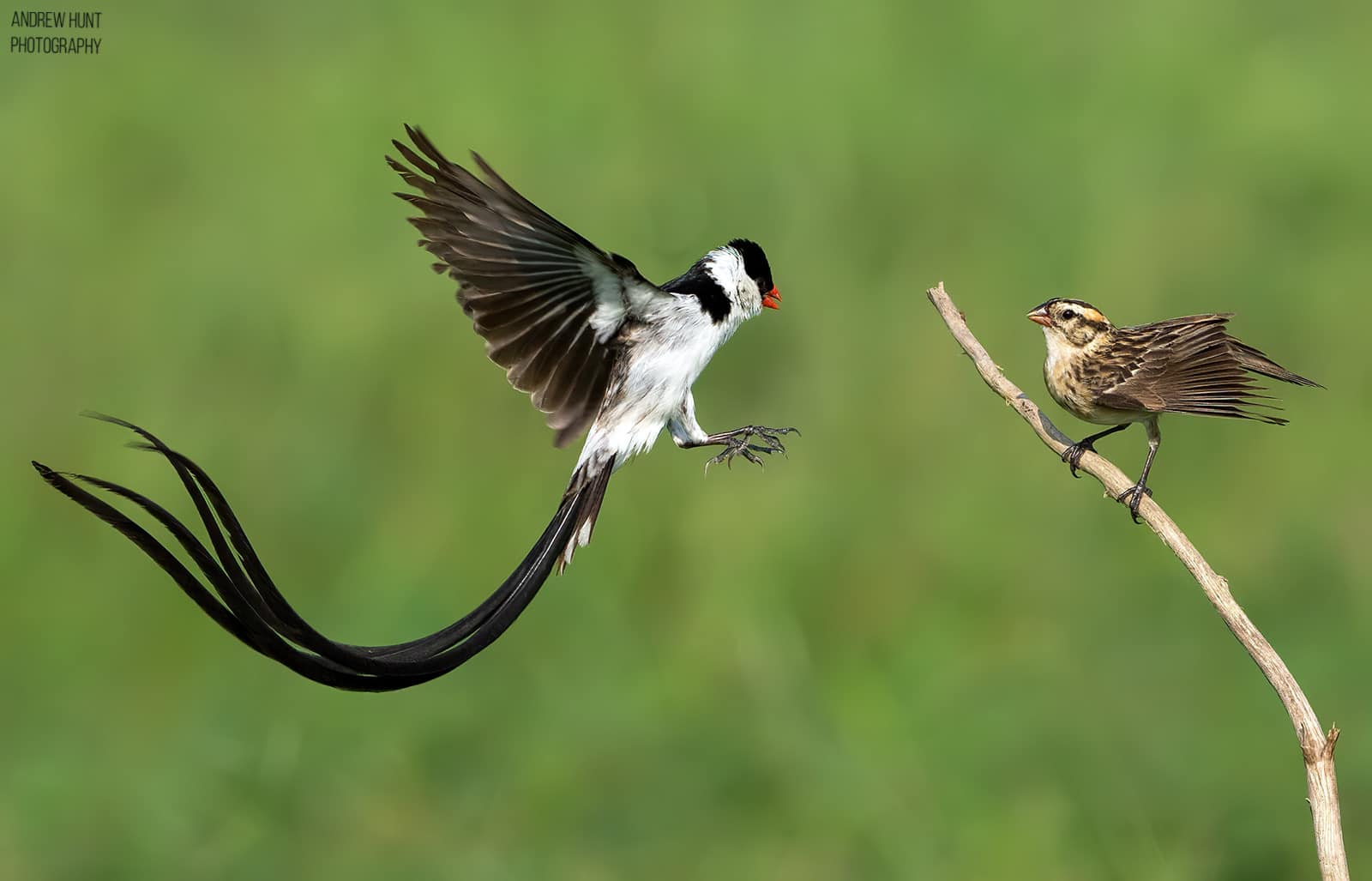 Image courtesy of Andrew Hunt/FB.
Image courtesy of Andrew Hunt/FB.
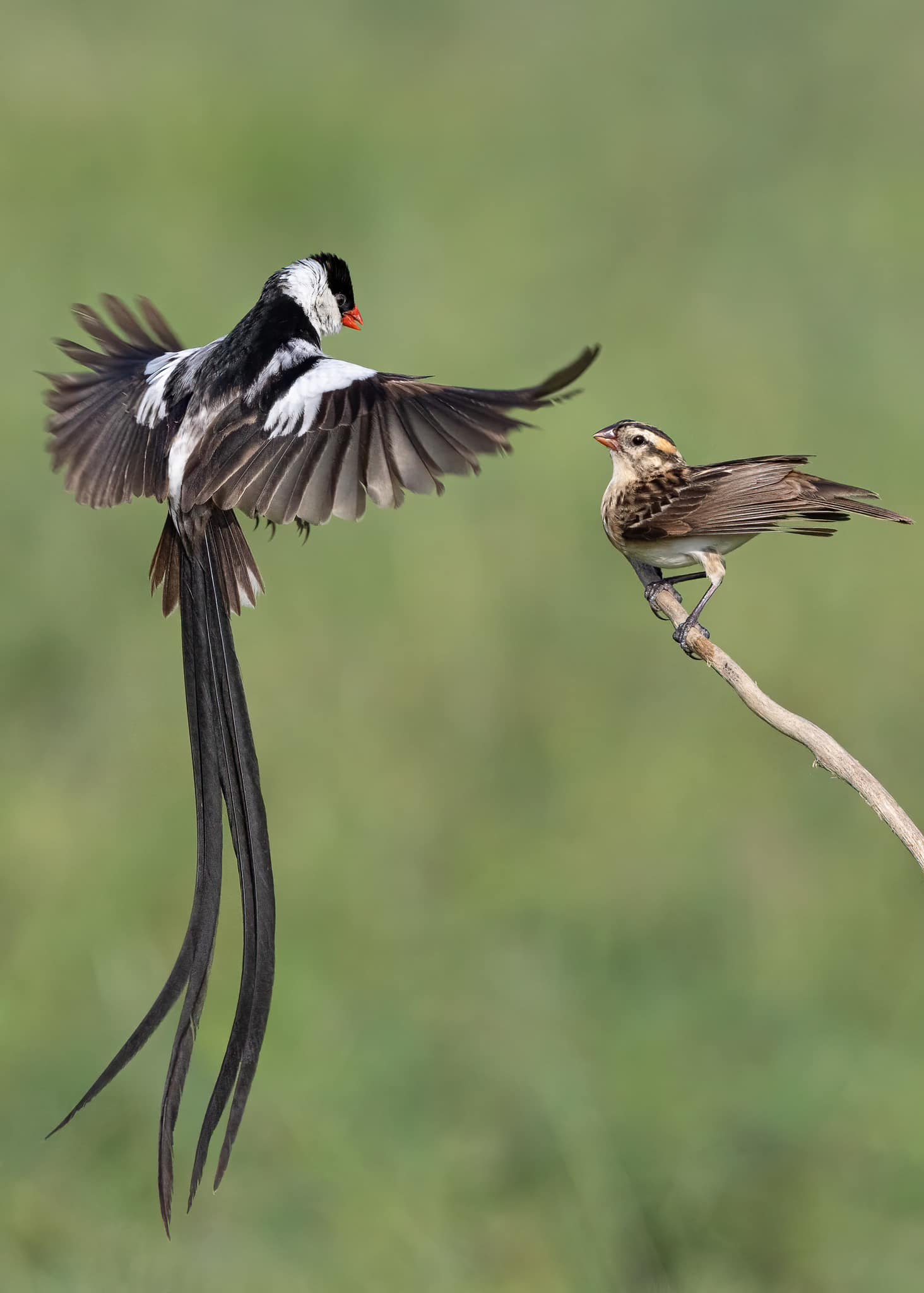 Photo by Choo Shiu Ling/FB.
Photo by Choo Shiu Ling/FB.
It looks especially impressive with his long dramatic tail feathers.
The enthralling dance only lasts a few seconds, and looks something like this in slow-mo:
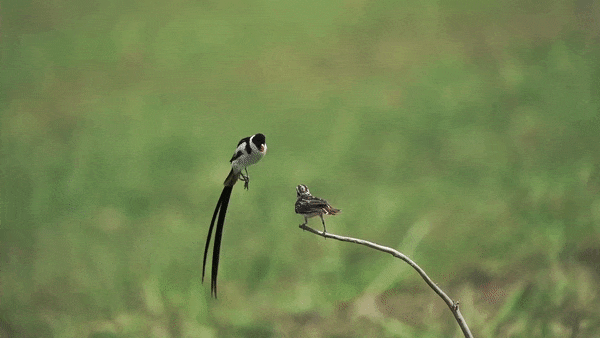 Video courtesy of Ow Xin Rui/FB.
Video courtesy of Ow Xin Rui/FB.
Hundreds of photographers onsite
One photographer estimated the number of birders at the field reached 300 on Saturday, and around 500 birders have visited the site in the past three days that the bird has been sighted.
Take a look at the crowd on a sunny afternoon:
 Image by Chee Kiong Kang/FB.
Image by Chee Kiong Kang/FB.
If the female bird doesn't like what she sees, she will fly away.
Fortunately, the enduring effort for both birders and the male bird has been fruitful so far, with birders managing to capture several mating attempts.
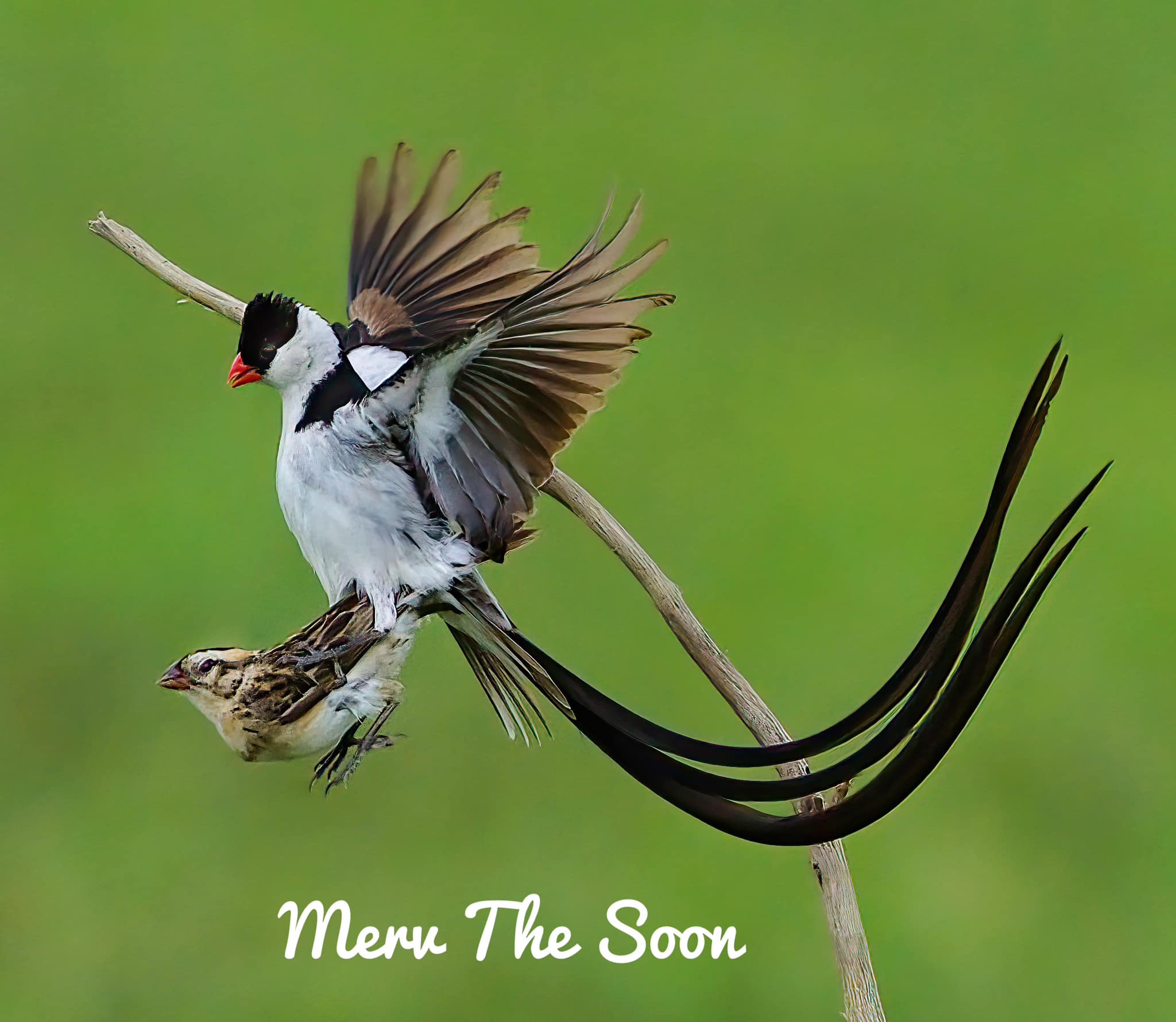 Image courtesy of Mervyn Soon/FB.
Image courtesy of Mervyn Soon/FB.
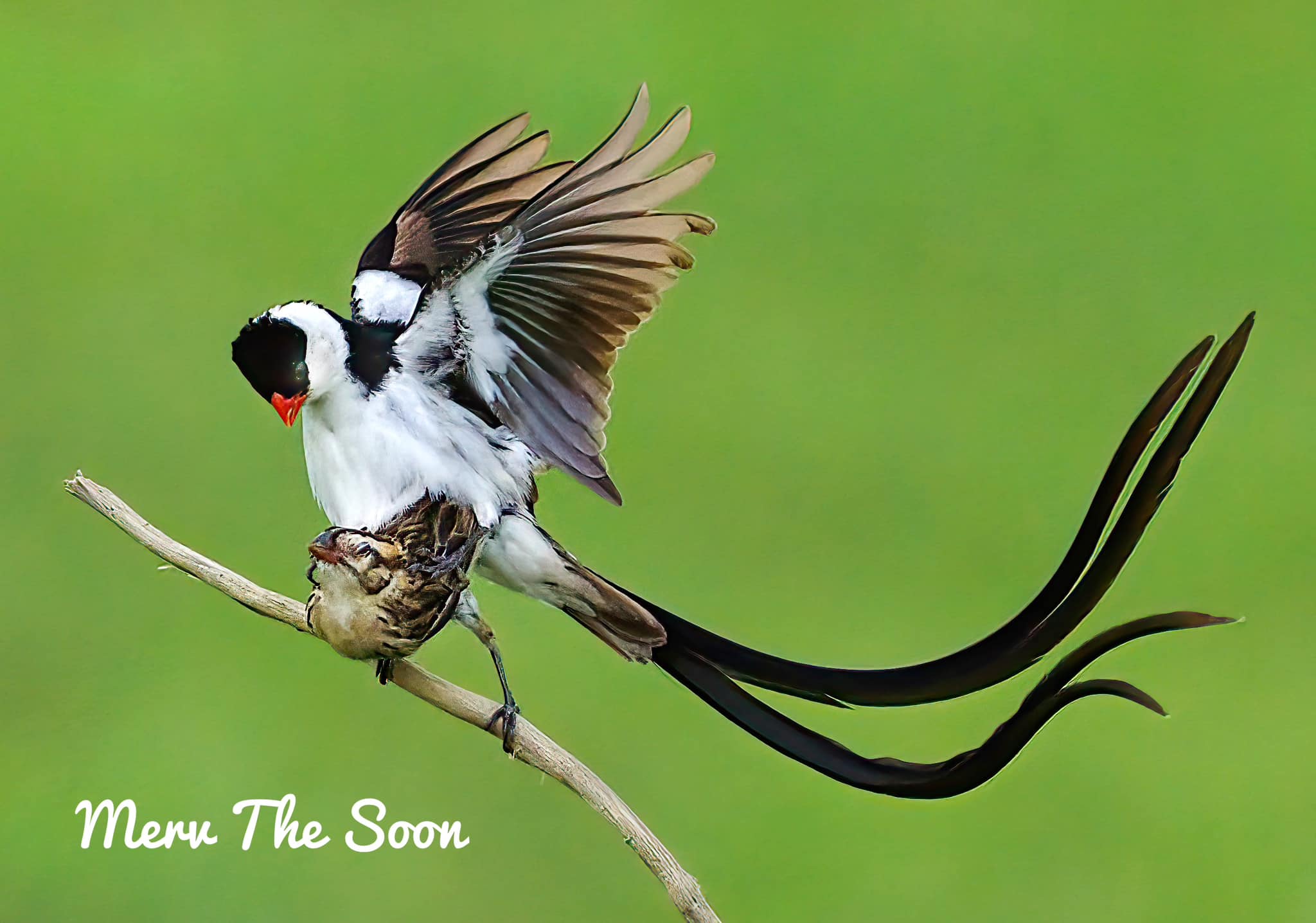 Image courtesy of Mervyn Soon/FB.
Image courtesy of Mervyn Soon/FB.
Here is a clip of one mounting attempt:
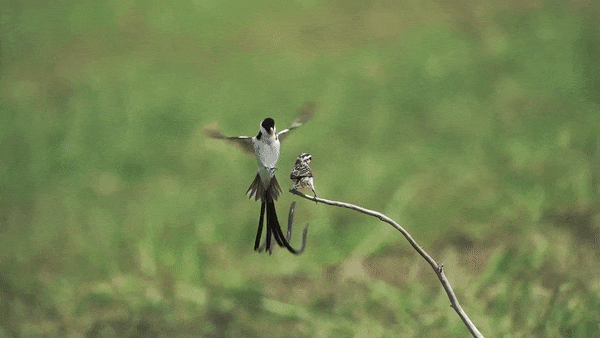 Video courtesy of Ow Xin Rui/FB.
Video courtesy of Ow Xin Rui/FB.
Pin-tailed whydah
The pin-tailed whydah is a 13cm-long songbird native to Africa.
It is common in South Africa and can also be found in Zimbabwe, Mozambique and parts of Namibia and Botswana.
It is understood that the species is not established in Singapore and the individuals observed here are most likely escaped or released birds imported by the pet trade.
While the pair looks very distinct from each other in these photos, males and females can actually be difficult to tell apart outside of their breeding season.
The male usually appears more like the female, but transitions to his breeding plumage during this time of year.
He is white with a bright red bill and a black cap.
The look is complete with a 20cm long, flowing black tail.
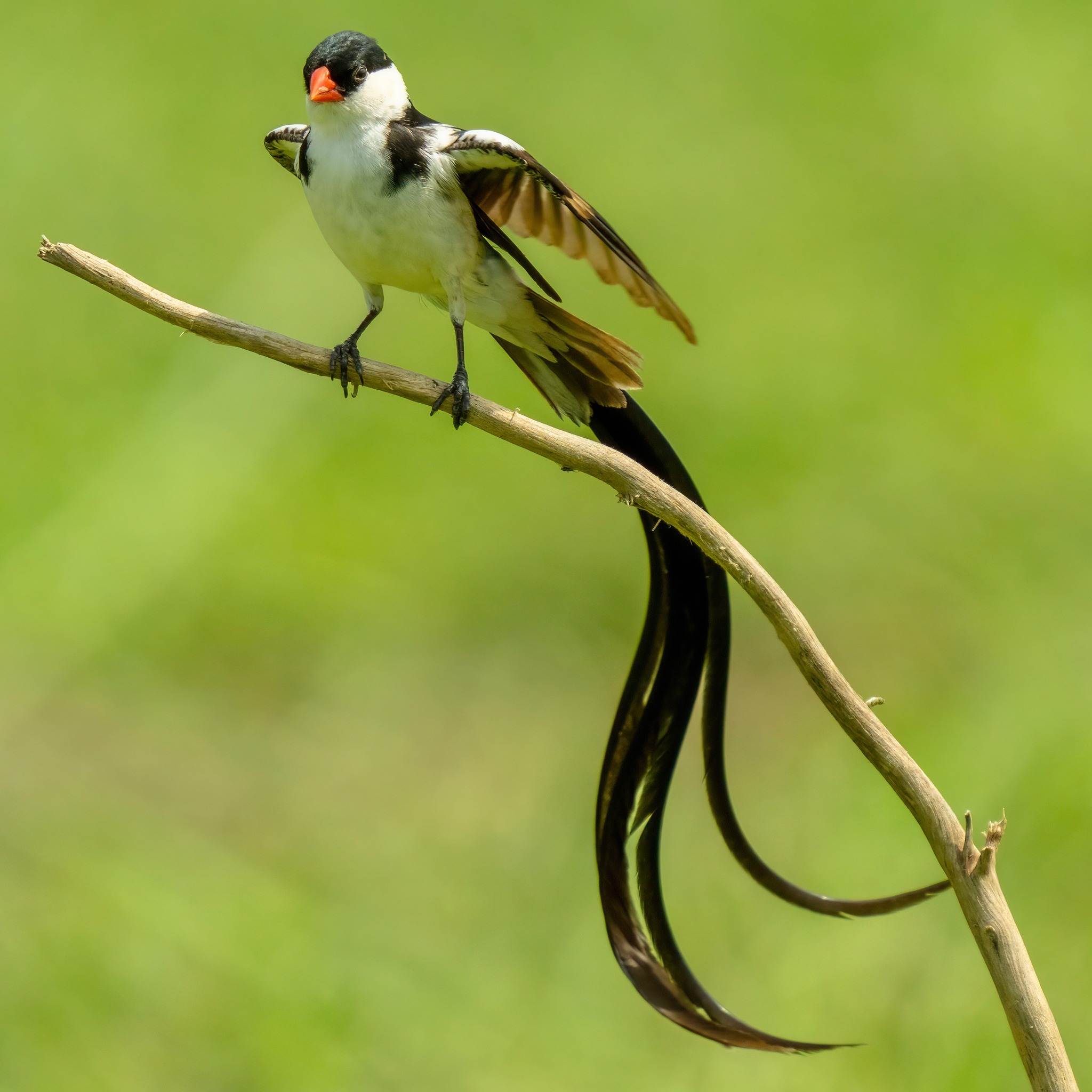 Image courtesy of Kelvin Ow/FB.
Image courtesy of Kelvin Ow/FB.
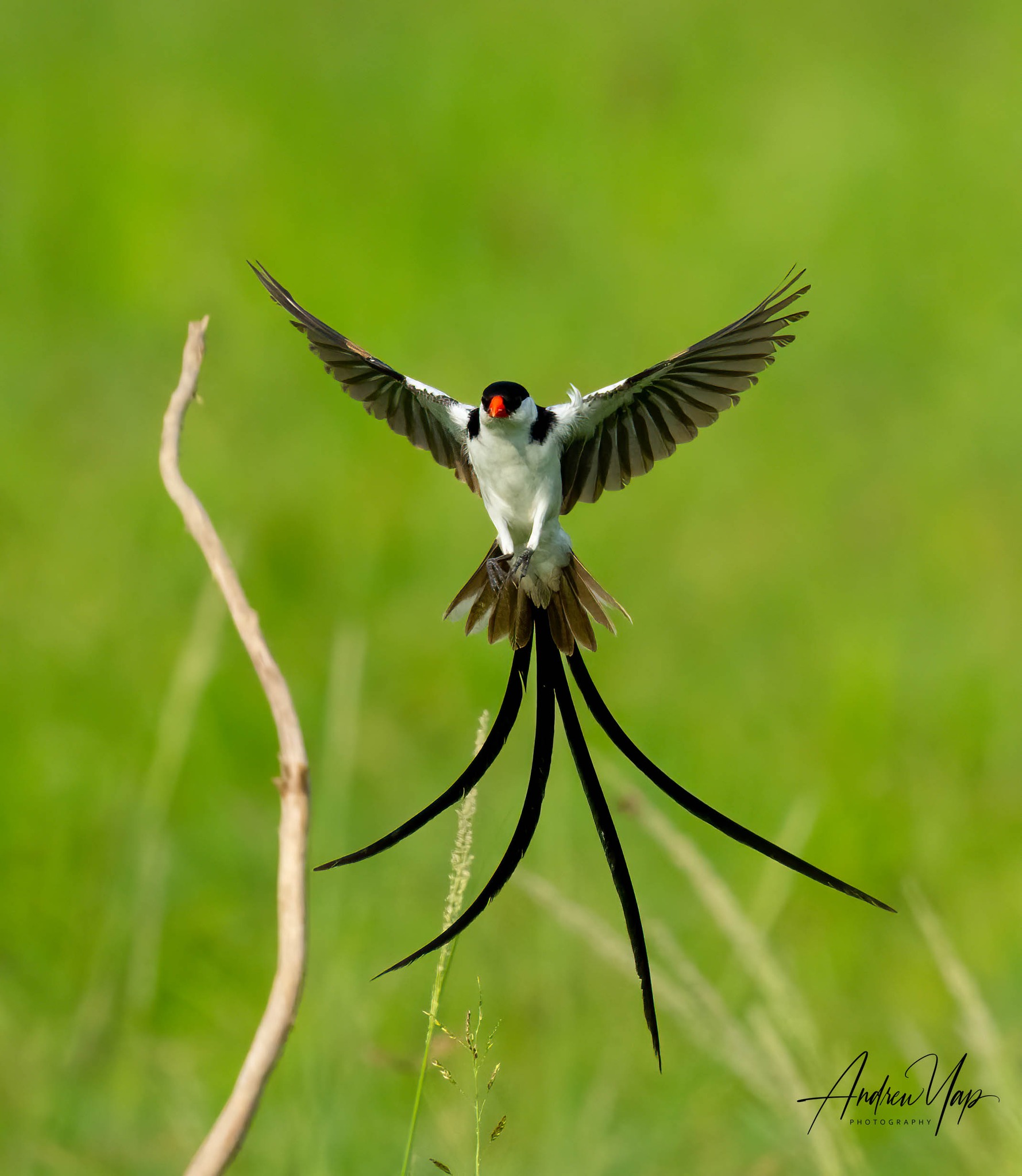 Image courtesy of Andrew Yap/FB.
Image courtesy of Andrew Yap/FB.
One fun fact about the pin-tailed whydah is that it is known to be a brood parasite.
This breeding strategy means that they lay their eggs in nests of other bird species and manipulates the host to raise its young as if it were its own.
Top images via Choo Shiu Ling, Kelvin Ow, Mervyn Soon & Chee Kiong Kang.
If you like what you read, follow us on Facebook, Instagram, Twitter and Telegram to get the latest updates.

